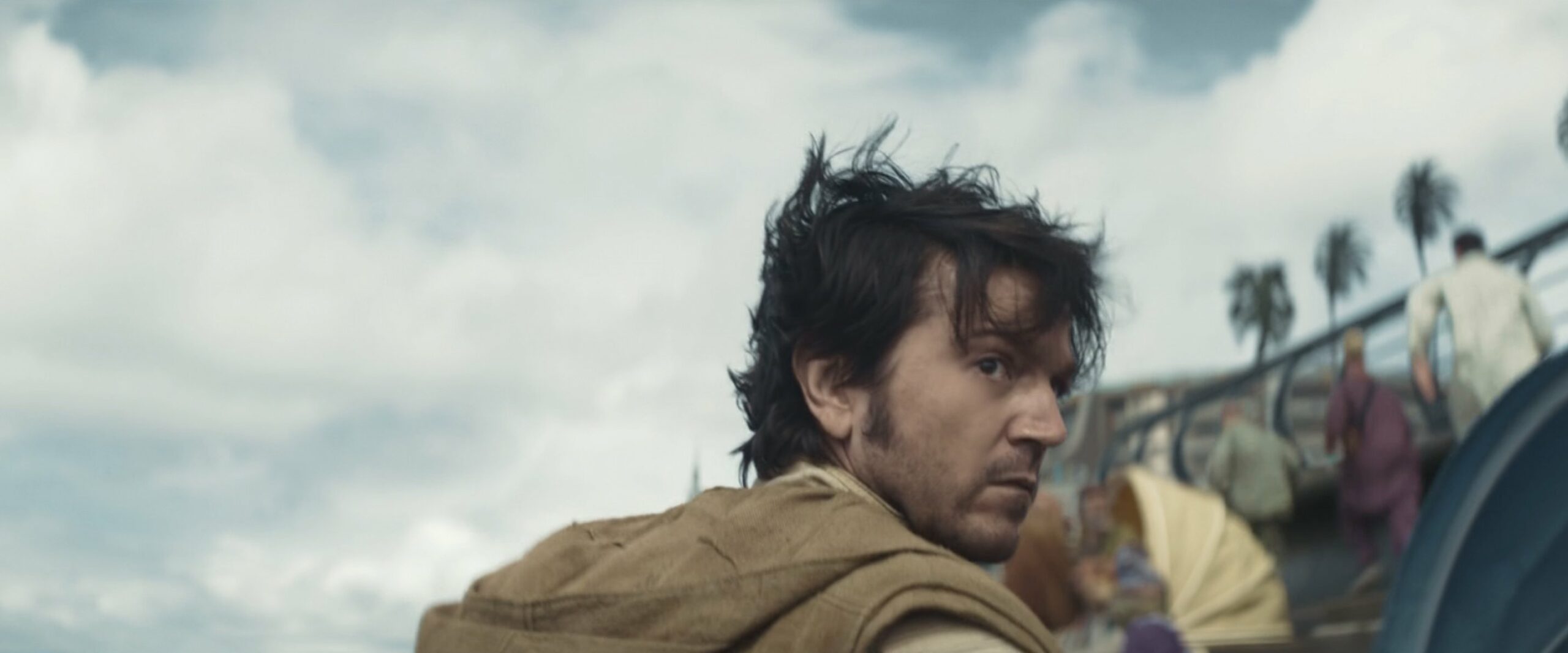This ‘Andor’ Scene Is Upsettingly Realistic

This post contains major spoilers for Episode 7 of Andor!
Episode 7 of Andor, “Announcement,” continues to up the stakes for Diego Luna’s Cassian Andor. After completing the heist on Aldhani and escaping with a big pile of credits, Cassian decides to live an easy life as a perpetual tourist on the resort planet of Niamos. Cassian is trying to get away from both the Empire and the Rebellion, but when he accidentally stumbles into the middle of a protest, he’s arrested and herded through a sham trial, where he’s sentenced to 6 years in prison.
The trial is horrific not because it’s run by mustache-twirling villains in the upper echelons of the Empire, but because it’s full of ordinary civil servants just doing their jobs. To the bored judge popping snacks into her mouth as she churns people through their sentencing, Cassian is just one more item on a crowded to-do list. For Cassian and the other people in the courtroom—whether or not they actually broke any law—their trials are devastating.
Wouldn’t it be nice if a situation like this was pure science fiction? If we could turn off the TV and go about our lives, safe in the knowledge that Cassian will escape his prison next Wednesday? Unfortunately, though, the kind of injustice Cassian faces is all too common in real life—and that’s what makes it so upsetting to watch.
The Empire bears an uncomfortable resemblance to real legal systems
In 2019, the Pew Research Center conducted a study on plea bargains in the United States, and what they found was sickening. Out of 80,000 federal prosecutions, only 2% of cases actually went to trial. Did the other 98% of suspects walk free? Nope. Almost all of them pled guilty to their charges.
Why on earth would the vast majority of suspects admit guilt instead of taking their cases to trial, where they would have a chance to convince a jury that they were innocent? The study found that federal prosecutors were using a variety of tactics to essentially force confessions out of suspects, even if those confessions were false. If you’re charged with a crime, and the prosecutor is threatening to indict your family or heap extra charges on you if you plead not guilty, are you really going to take that chance? Especially if you don’t know how to get yourself a good lawyer?
Of course the trial scene in Andor isn’t a direct parallel to an American courtroom. Andor is presumed guilty and doesn’t get the benefit of a lawyer or even a chance to defend himself. The trial seems to function only as a formality, with the judge’s only job being to rubber stamp each prison sentence.
But the atmosphere of the trial hits much too close to home. In the Star Wars universe, the Empire runs by making it very easy to do evil and very difficult to do good. The whole system is set up to facilitate mindless, banal, bureaucratic evil. The judge on Niamos knows her job is to funnel people into prisons, so that’s what she does. She seems wistful that the sentence for civil disruption and anti-Imperial speech used to be only 6 months, but there’s nothing she can do about it without making trouble for herself. If she follows orders and carries out the sentencing requirements, then she gets to go home each day with a paycheck.
And just like in real life authoritarian societies, propaganda and prejudice help streamline the process of controlling the populace and quelling dissent. If the judge in Andor felt bad for the people she’s sentencing—if she felt like they didn’t deserve their fate, or if she recognized any part of herself in them—then it would be harder for her to follow orders. If she believes in the idea of “rebel scum,” though, then processing them becomes much easier.
Like any good story, Andor doesn’t just make us care about its characters. It turns an uncomfortable mirror back on us, forcing us to contend with the injustices in our own society. We know that Cassian will escape the Niamos prison somehow—after all, the series is a prequel—but we can also work for justice for all the real prisoners languishing behind bars.
(featured image: Lucasfilm)
Have a tip we should know? tips@themarysue.com